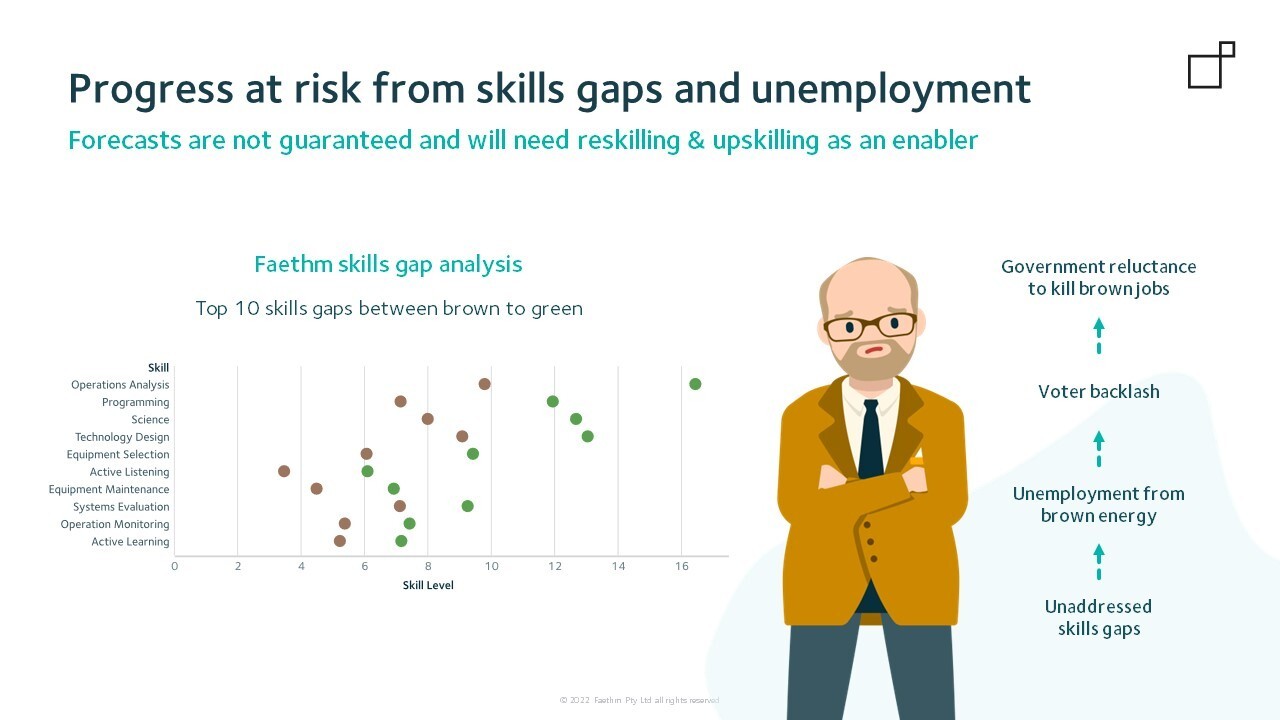The question on nearly every HR leader’s mind now is: ‘what skills will I need to add to my...
The green migration: Reskilling the brown energy workforce
Employees in the brown energy sector – the industry responsible for the production of fossil fuels including gas, coal, and oil – face an uncertain future.
Last month, I caught up with Noel Ginsburg, former gubernatorial candidate for Colorado and Founder, CEO and Chairman at CareerWise Colorado at the ASU+GSV Summit to discuss the future of the brown energy workforce.
During the discussion, we highlighted how businesses in the industry are introducing automating technologies to drive efficiencies and improve outcomes on sites. The implementation of new technologies is leaving a large portion of the workforce displaced. Look around any mining site today and you’ll see autonomous vehicles aplenty, but very few humans.
At the same time, the industry is experiencing a huge amount of external disruption. There is an exponential decline in the cost and adoption of renewable energy sources like wind and solar. Combine this with shifting global demand, geopolitical factors driving the move to clean energy, and social consciousness around sustainability heightening – the brown energy sector is facing unprecedented change.
In Faethm by Pearson’s recent report looking at ‘The Key to the Energy Transition: Reskilling and Upskilling from Fossil Fuels to Renewables’, we highlighted that the oil and coal industries are haemorrhaging jobs. Between 2009 and 2017, employment in the coal industry dropped by 58%.
It’s not all doom and gloom for employees in the brown energy sector, though. Where there is change, there is also opportunity.
While demand for roles in brown energy is rapidly declining, demand for roles in the green energy sector increases. And the best part is, data from Faethm by Pearson shows that when you look at the skills in the two sectors, there is actually a very minimal skills gap:

During my discussion with Noel, we delved into how we can transition the brown energy workforce into future-proofed roles that will be in demand for years to come. We have the opportunity to capitalize on the transferable skills employees in the brown energy sector possess that could see them move through job corridors in the green energy sector.
Faethm by Pearson is already working with the likes of the State of Texas, the Government of South Africa and the Government of Australia to address this challenge and embrace the change in energy demand in a way that considers the human impact:
However, I also pointed out that it is not enough to simply skills match when it comes to transitioning employees from the brown to green energy workforces. Organizations, businesses and governments have a social and moral responsibility to look at how technology will impact each and every role in the workforce and identify a path to a future-proofed role.
The transition won’t be seamless either. The transition will take a concerted effort from employers, governments, and educational institutions.
The job doesn’t stop once a job corridor is identified. Employees must then be upskilled or reskilled to ensure they have the relevant skillsets to deliver in a role in an entirely new industry:
What’s more, the skills Faethm by Pearson has identified are the skills that will be in demand in green energy roles are the soft skills that technology can never replace – creativity, problem-solving, and human connection. While tech roles will continue to be an element of the workforce, it’s essential that organizations support employees to learn these skills that can never be replaced too.
Equipped with the right skills, employees from the brown energy sector will be able to transition to roles in green energy – or indeed other sectors with longevity like construction or healthcare.
Displaced employees don’t have to be left behind - with the right reskilling programmes in place, we can ensure every individual remains employable.
Faethm's future of work predictive analytics is recognised globally as a world first. Contact us today for a demo of the platform.



-1.png?height=200&name=e6368bcf-62d7-4808-bc95-960523f27fe8_Faethm%20AI%20page%20banner%20(1)-1.png)